Photographs: Courtesy, Tata Motors Abhineet Kumar, Kalpesh Damor andIshita Ayan Dutt
Gujarat's total soft loan to the Tata Nano project in Sanand over 20 years is expected to be much lower than the earlier estimated Rs 9,750 crore ( Rs 97.50 billion).
Though the loan agreement between the state and the Tatas fixed the ceiling at 330 per cent of the first-phase investment of Rs 2,900 crore ( Rs 29 billion), including the relocation expenditure, there was an additional condition that the loan amount will be equal to the gross value added tax (VAT) and Central sales tax.
This means while the total loan, at 0.1 per cent interest, cannot exceed Rs 9,750 crore ( Rs 97.50 billion), the actual loan would depend on the sale of Nano cars and its components.
...
Poor sales: Gujarat's soft loan to Nano may be scaled down
Photographs: Courtesy, Tata Motors
And, this is where the Nano has faltered. Tata Motors produced 21,358 Nano models in 2013-14 against the plant capacity of 250,000 vehicles a year in Sanand, using only about a tenth of the capacity.
The number of Nano models sold in the year is a little less at 21,129.
In slightly less than two years since production began in Sanand in June 2012, the government has disbursed Rs 273.45 crore ( Rs 2.73 billion) in soft loan to the company against a collection of Rs 382 crore ( Rs 3.82 billion) in VAT. Besides, the company can only avail of the loan within 20 years of the beginning of production.
This loan will have to be repaid (including the interest on the principal) in monthly instalments from the first month of the 21st year (from the date of drawdown of such loan amount) of the commencement of first sale of the Nano.
The repayment will be along with the interest amount for that amount of principal.
...
Poor sales: Gujarat's soft loan to Nano may be scaled down
Photographs: Courtesy, Tata Motors
"While such soft loans do not break the chain of VAT, it provides support to a company's working capital requirement, which is the whole purpose of this incentive," says Heetesh Veera, tax partner at global consultancy firm EY.
Recently, the Gujarat High Court dismissed a suit challenging the state's incentive scheme to the project, ending controversy on the soft loan, saying the "loan (was) dependent upon the recovery of VAT" and not "refund of tax".
"The suit was based on incorrect assumptions and interpretations about the incentives and loans and the same has been rightfully dismissed," said a company spokesperson.
Tata Motors said "the package offered by Gujarat was competitive and similar to other states, with other factors such as availability of the appropriate size of land, congenial law and order situation and the need for expeditious project approvals compensating for what may have been forgone in incentives."
...
Poor sales: Gujarat's soft loan to Nano may be scaled down
Photographs: Courtesy, Tata Nano
Similar incentives were also offered by Haryana, Odisha, Tamil Nadu, Andhra Pradesh, Bihar and West Bengal.
In fact, Gujarat had made the offer to match the incentives offered by West Bengal, which had tried to match the tax break available in Uttarakhand.
Tata Motors' plant in Pantnagar in Uttarakhand makes the Ace small trucks.
The company could have also invested in the hill state for its Nano project to benefit from lower excise duty offered for 10 years under a Central scheme.
The state had also offered 100 per cent exemption from corporate income tax in the first five years, followed by a 30 per cent tax rate for the next five years.
...
Poor sales: Gujarat's soft loan to Nano may be scaled down
Photographs: Courtesy, Tata Nano
Consequently, West Bengal had to go out of its way to attract the Tata Nano project. Since it could not have provided the exemption on the Central excise duty, it offered a soft loan of 0.1 per cent of the amount received as VAT and Central sales tax.
The loan was to be repaid after 30 years of the commencement of production.
This was on top of other incentives: 645.67 acres on a 90-year lease in Singur for a rent of Rs 1 crore ( Rs 10 million) for first the five years.
Thence, the rent was supposed to increase by a fourth every five years for 30 years, at Rs 5 crore (Rs 50 million) a year from the 31st year at 30 per cent every 10 years till the 60th year, and at Rs 20 crore ( Rs 200 million) a year from the 61st year till the 90th year.
...
Poor sales: Gujarat's soft loan to Nano may be scaled down
Photographs: Courtesy, Tata Nano
But farmers' opposition to the land offering in Bengal forced Tata Motors to abandon its plant in Singur.
Tata Nano project
Incentives offered by state governments
Uttarakhand
100 per cent exemption from excise duty for 10 years
100 per cent exemption from corporate income tax for first 5 years
30 per cent exemption from corporate income tax for next 5 years
West Bengal
Soft loan at 0.1 per cent interest for amount equal to VAT and CST received on Nano sales
Loan to be paid with interest after the 30th year of plant starting sales
Loan of Rs 200 crore ( Rs 2 billion) at 1 per cent interest; repayable in five equal annual installments from the 21st year
Gujarat
Soft loan of Rs 9,750 crore ( Rs 97.50 billion), which is 330 per cent of the expected investment of Rs 2,900 crore ( Rs 29 billion) in the first phase
Poor sales: Gujarat's soft loan to Nano may be scaled down
Photographs: Courtesy, Tata Nano
Disbursement in 20 years (monthly) as follows:
200 per cent of VAT payment a month during the first four years of production
Thereafter, 150 per cent of gross VAT payments a month for 150 per cent of the eligible investment
Balance amount of loan from 150 per cent to 330 per cent eligible investment to be disbursed, subject to 100 per cent of gross VAT payments
To be repaid
Monthly at 0.1 per cent interest after 20 years

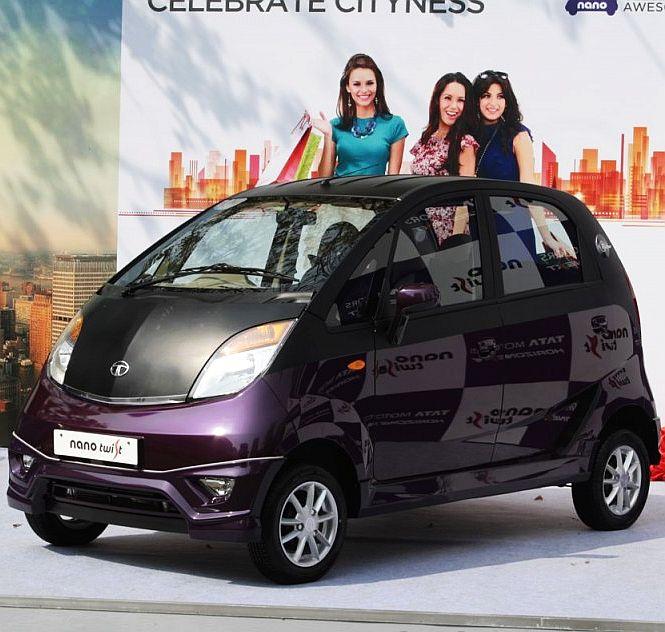
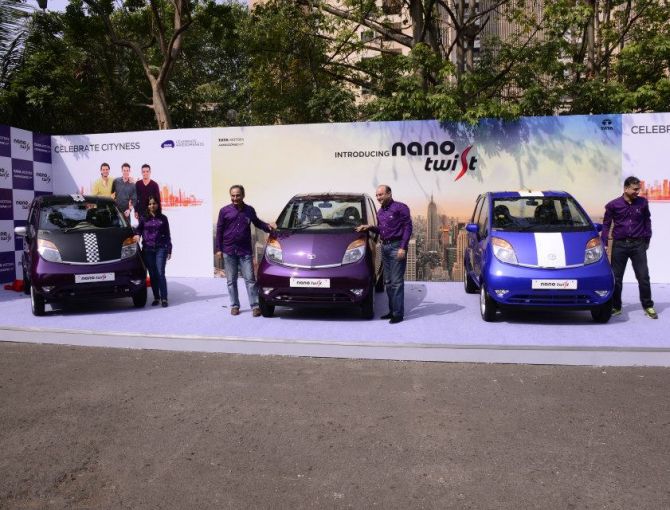
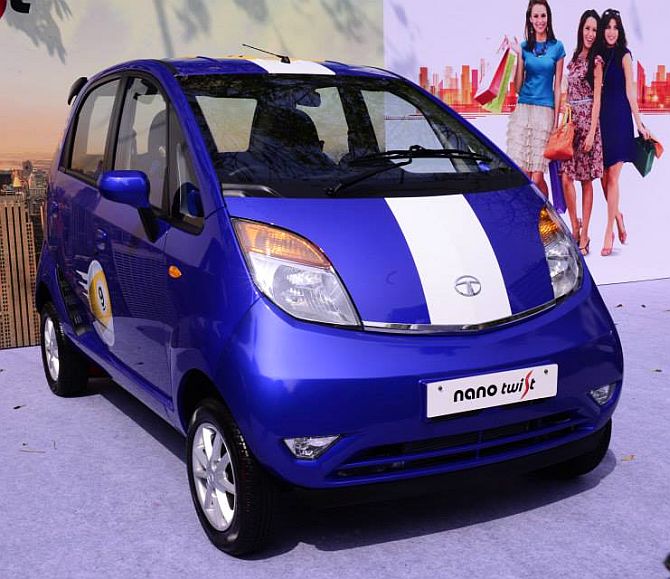
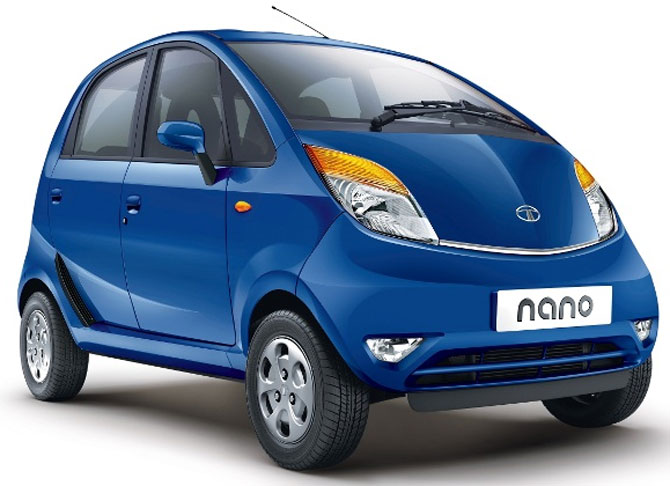


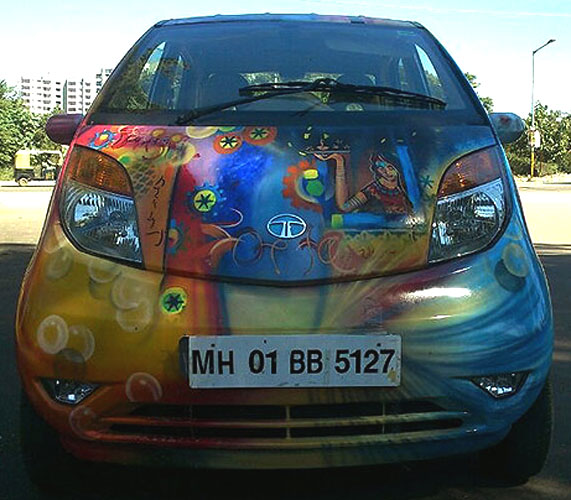

article